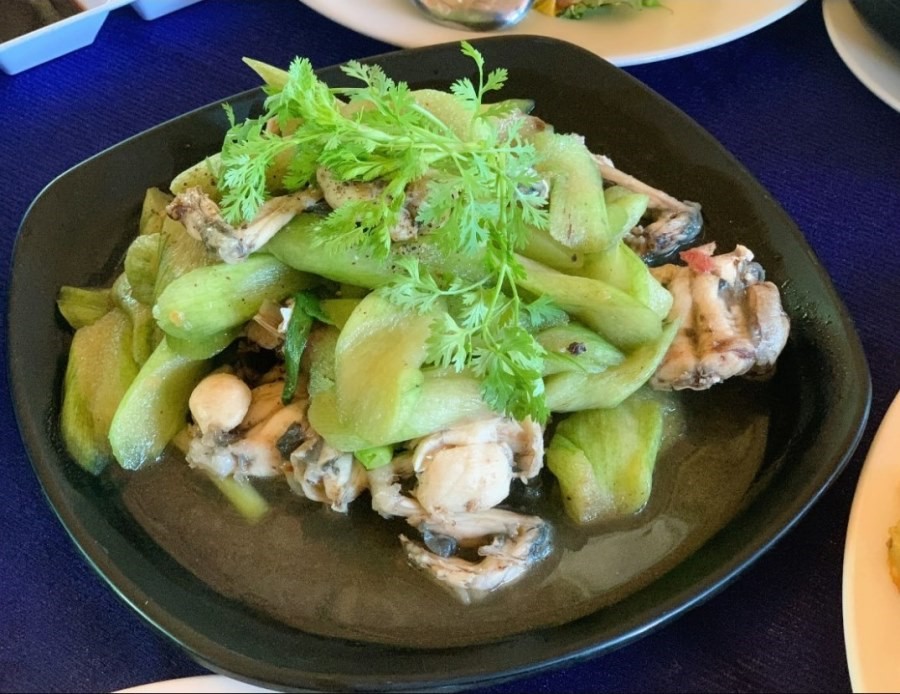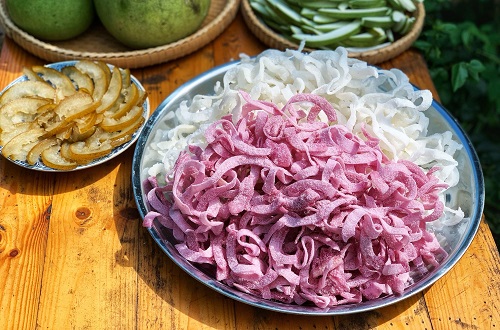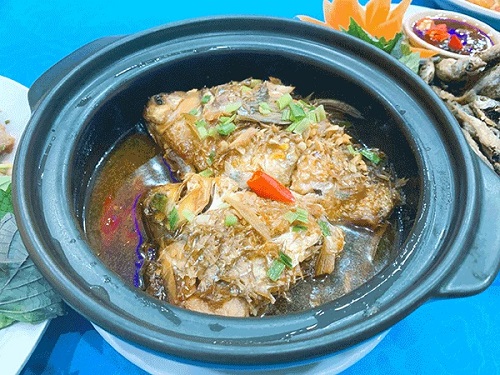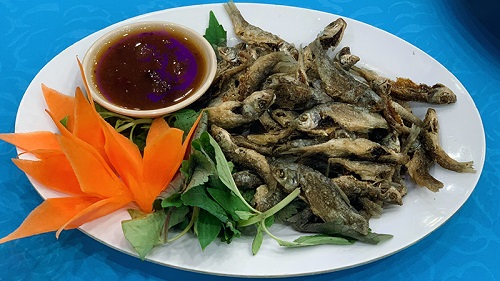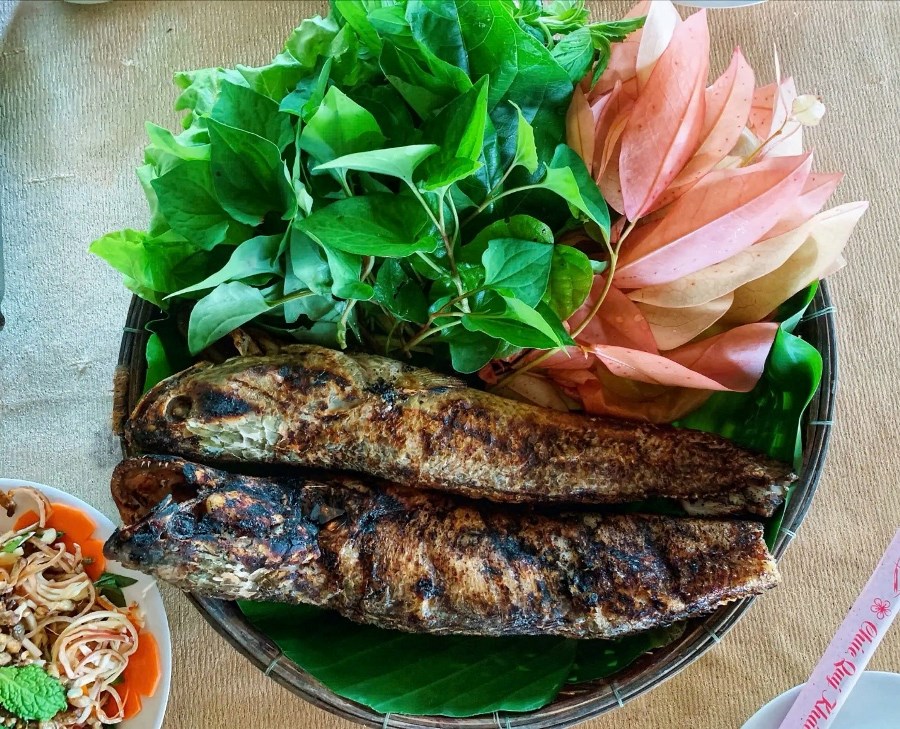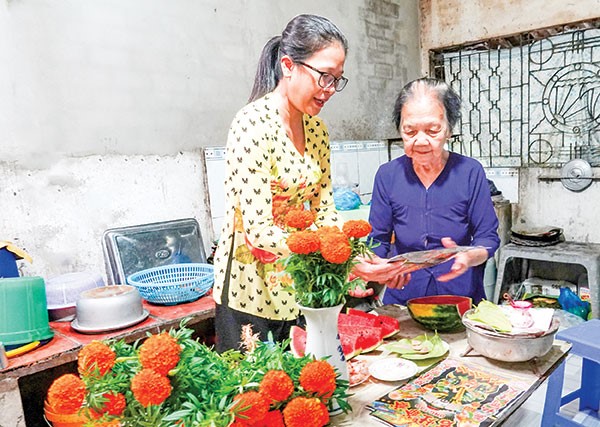
The Story of Kitchen Gods in Vietnam has many different versions, but the general plot is similar. Below is a typical story:
Once upon a time, there was a couple named Trong Cao and Thi Nhi. The two had been married for a long time but had no children. Thi Nhi loved her husband very much, but due to his increasingly abusive behavior, one day she left him. She went to another place and married a man named Pham Lang. This time, their life was peaceful, and they worked hard on their farm. On the other hand, Trong Cao regretted his behavior and left home to find his wife. He wandered around, begging for food wherever he went. One day, he happened to knock on the door of Pham Lang's house. Pham Lang was not home, only Thi Nhi was there. When she saw Trong Cao, she recognized him as her former husband, but Trong Cao did not recognize her. After being hungry and thirsty for a long time, Thi Nhi offered Trong Cao food and wine. After eating and drinking, Trong Cao fell asleep and Thi Nhi placed him in a pile of hay in the corner of the garden and covered him with more hay so he could rest. That evening, Pham Lang returned home and burned the pile of hay in the corner of the garden to fertilize the land. The fire caught on to where Trong Cao was sleeping. When Thi Nhi found out, Trong Cao already died in the blaze. Loving her husband turned out to kill her husband, she was in so much pain, she jumped right into the burning fire. Pham Lang, who loved his wife deeply, eventually lost hope and threw himself into the fire beside Thi Nhi. Upon witnessing the love between the three individuals, the Jade Emperor appointed them as kitchen gods to oversee the cooking and eating habits of humans. They would observe each family's actions throughout the year and report to the Jade Emperor on the 23rd day of the twelfth lunar month to let him know whether their deeds were good or bad(1).
In many other countries around the world, there is also a tradition of worshipping the Kitchen God and stories about the origin of the Kitchen God, such as Japan, Korea, and especially China. According to statistics, there are about 40 stories in China that share the origin of the Kitchen God, with many different characters believed to be the Kitchen God. Among them, the story of Truong Tao Vuong is relatively clear about the character and events. The story is about Truong Lang who went to trade and became rich and returned to betray his wife, Dinh Huong. After an unfortunate house fire and losing his sight, Truong Lang had to beg for a living and met Dinh Huong, who had already married another man. When he recognized his old love, Truong Lang died of shame(2).
Currently, the tradition of worshiping the Kitchen God in Vietnam and China has similarities in terms of worship time - worshiping at the end of the year to send the Kitchen God back to heaven; the offerings include cakes, fruits, tea, etc. In general, the offerings are sweet food to hope that the Kitchen God will Thuong thien ngon hao su / Ha gioii bao binh an” means "Ascend to heaven with good news / Descend to earth with peace and security… However, in terms of the story, the Kitchen God of Vietnam and China are different to some extent. In terms of content, our folklore stories have many interesting, vivid, and humane details of everyday life(3).
Furthermore, the story of Tao Quan in Vietnam also aims to explain the origin of the stove. From ancient times, Vietnamese people have used three equal stones placed unevenly on the ground as a support pillar to place cooking utensils. "It is both mysterious and evocative, with a sound of the connection between the Three Powers: Heaven - Earth - Human, and it also reflects the geometric structure: three points will create a plane. The three Kitchen Gods help the cooking pot on the stove to always be stable and not easily spill the food because the family's food was very difficult to obtain in life. Around the red fire of the stove, everyone, the generations of descendants in the family, warm up together, sharing warm meals, the result of hard work and sharing stories about life yesterday, today and tomorrow..."(4).
---------------------
(1) Nguyen Dong Chi (2004), "Works awarded Ho Chi Minh Prize, Volume 1", Social Science Publishing House, pp.103-105.
(2) Dinh Hong Hai (2015), "Distinctive symbols in Vietnamese traditional culture, Volume 2, The Deities", The Gioi Publishers, Hanoi, pp.75-76.
(3) Kieu Thu Hoach (2014), "Vietnamese folk culture: A comparative perspective", Social Science Publishing House, Hanoi, pp.200.
(4) Duong Van Sau (2022), "Decoding Vietnamese culture", Social Science Publishing House, pp.65-66.
Source: Can Tho News - Translated by Hoang Dat








